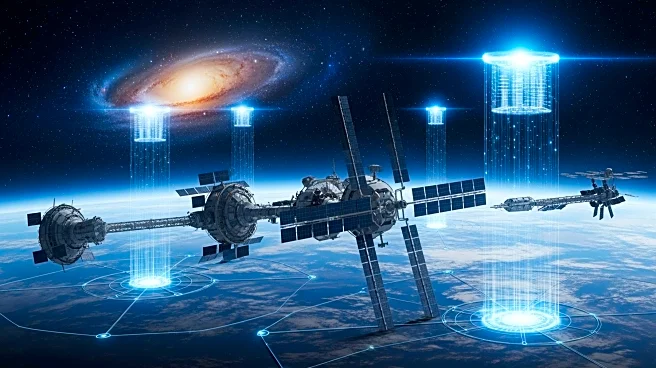What's Happening?
As the demand for data centers continues to rise, driven by advances in artificial intelligence, some companies are exploring the feasibility of space-based data centers. These facilities, which require significant land and energy, contribute to carbon
dioxide emissions. The ASCEND project in Europe is investigating the potential of space-based data centers to reduce CO2 emissions by utilizing continuous solar energy. Thales Alenia Space, a France-based company, has led a study on this concept. Meanwhile, Abu Dhabi-based startup Madari Space is planning to launch small computing components into orbit as technical demonstrations. The company aims to eventually deploy a constellation of data satellites. Other companies, such as Lonestar Data Holdings and Starcloud, are also exploring space-based data storage and processing solutions.
Why It's Important?
The exploration of space-based data centers represents a potential solution to the challenges of land and energy constraints faced by terrestrial data centers. By leveraging continuous solar energy in space, these facilities could offer a more eco-friendly alternative. However, significant technological advancements are required to make this vision a reality. The development of environmentally friendly rockets and the ability to dissipate heat in a vacuum are among the challenges that need to be addressed. If successful, space-based data centers could revolutionize the data storage industry, providing a sustainable solution to meet the growing demand for computing power.
Beyond the Headlines
While the concept of space-based data centers is promising, there are several challenges and risks associated with this approach. The cost of launching and maintaining data centers in space is a significant barrier. Additionally, space-based facilities face risks from radiation, space debris, and potential disruptions from space weather. The environmental impact of increased rocket launches and the potential for space debris are also concerns. Despite these challenges, proponents argue that space-based data centers are necessary to avoid technological stagnation and resource exhaustion on Earth.














